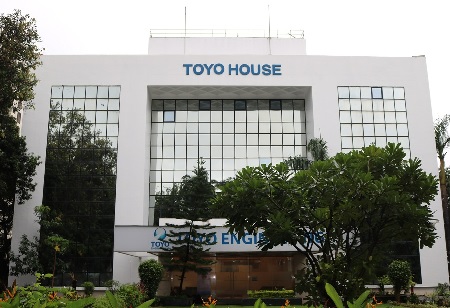
Toyo Engineering Partners with Indonesia to Develop Geothermal Master Plan

 Japanese firm Toyo Engineering Corporation (Toyo) has signed a letter of intent with Indonesia’s Ministry of Energy and Mineral Resources (MEMR) to collaborate on developing a ‘Geothermal Master Plan'.The plan aims for demonstration work in 2025, with full commercialization expected by 2026-2027.
Japanese firm Toyo Engineering Corporation (Toyo) has signed a letter of intent with Indonesia’s Ministry of Energy and Mineral Resources (MEMR) to collaborate on developing a ‘Geothermal Master Plan'.The plan aims for demonstration work in 2025, with full commercialization expected by 2026-2027.
A ‘Geothermal Master Plan’ envisions the use of technologies to maximize the potential and opportunities in Indonesia’s existing geothermal fields. The company thus proposes the concept of a “geothermal carbon neutral park” that will help reduce risks and ensure sustainability in geothermal project development.
Toyo had previously signed an MOU with PT Medco Power for a joint study on geothermal opportunities based on this same concept.
To generate power, for example, the project plans to employ a closed-loop system that can extract heat even from fields with insufficient steam. In addition to generating electricity, extra value can be extracted from a geothermal field by producing next-generation fuels such as green hydrogen, and such green fuels as ammonia and methanol. Another option is to recover valuable mineral resources in the geothermal brine, including silica and lithium.
Toyo ultimately aims to develop a concept that will allow for geothermal development in sites that previously may not have been considered very attractive.
“Although geothermal energy has great potential, when it comes to its actual development, there may not be a sufficient number of locations that have both the necessary amount of water and heat”, said SAKATA Eiji, executive officer and Carbon Neutral Business Division director at Toyo Engineering Corporation.
Since the 1970s, Toyo Engineering has built strong ties with Indonesian entities to develop fertilizer and ammonia production facilities. In 2012, it acquired IKPT, a local company with a solid history in geothermal power, as a subsidiary. This acquisition has enhanced Toyo’s operations in Indonesia and improved communication with local partners.

